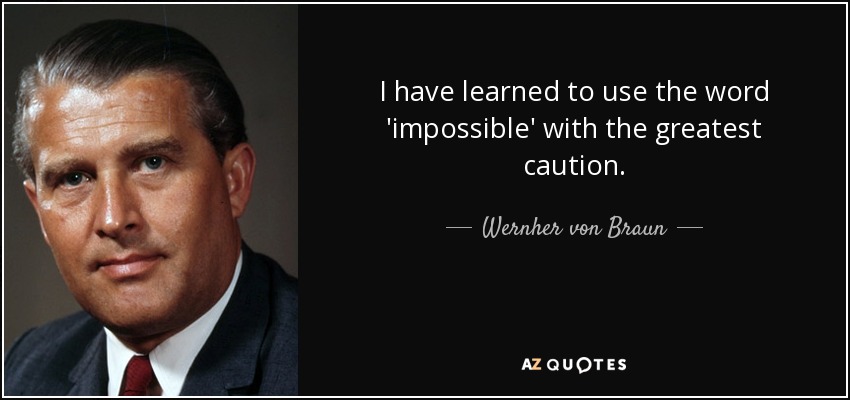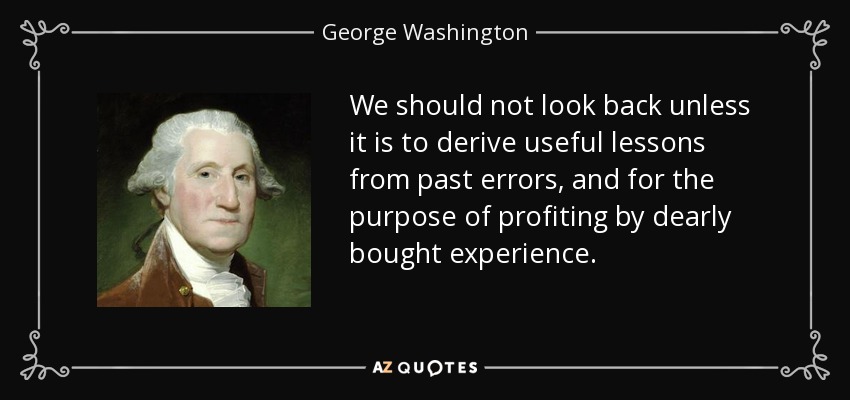Click here to return to Blog Post Intro
Cultivate Big Picture Thinking
Check out my summary of Donald Trump’s Think Like a Champion.
Big-picture thinkers are never satisfied with what they already know. They are life-long learners.
Thomas Fuller, chaplain to Charles II of England, observed, “He that is everywhere is nowhere.” To get things done, you need focus. To get the right things done, you need to consider the big picture.
The person who forgets the ultimate is slave to the immediate.
Big-picture thinkers are comfortable with ambiguity. They embrace and deal with complex ideas.
Keep learning, keep growing, and keep looking at the big picture!
Engage in Focused Thinking
Focused thinking removes distractions and mental clutter.
Satchel Paige said, “Don’t look back—something might be gaining on you.”
Don’t do easy things first or hard things first or urgent things first. Do first things first—the activities that give you the highest return. In that way, you keep the distractions to a minimum.
Be aware both of your need to remain accessible to others and your need to withdraw from them to think. Walking slowly through the crowd allows you to connect with people and know their needs. Withdrawing from the crowd allows you to think of ways to add value to them.
According to researchers, “If you’re trying to accomplish many things at the same time, you’ll get more done by focusing on one thing at a time, not by switching constantly from one thing to another.”
Maxwell’s father used to say, “Find one thing you do well, and don’t do anything else.” If you want to do well at a few things, you’ll have to give up many things.
Consider this: you don’t need to know about 99% of everything in life. You need to focus on the 1% that gives the highest return.
Harness Creative Thinking
Annette Moser-Wellman, author of The Five Faces of Genius, wrote, “The most valuable resource you can bring to your work and to your firm is your creativity. It’s your ideas that matter.”
Creativity is about having ideas—lots of them. Have you ever met a creative thinker who didn’t love options?
Diplomat and long-time President of Yale University, Kingman Brewster, said, “There is a correlation between the creative and the screwball. So we must suffer the screwball gladly.” To foster creativity in yourself and others, be willing to tolerate a little oddness. Creativity is intelligence having fun.
Author and creativity expert Ernie Zelinaki wrote, “Creativity is the joy of not knowing it all. The joy of not knowing it all refers to the realization that we seldom if ever have all the answers; we always have the ability to generate more solutions to just about any problem. Creativity is having options.”
Creativity is teachability. It’s seeing more solutions than problems. Creativity is largely a matter of asking the right questions. Management trainer Sir Antony Jay said, “The uncreative mind can spot wrong answers, but it takes a creative. Ind to spot wrong questions.”
Charlie Bower said, “A new idea is delicate. It can be killed by a sneer or a yawn; it can be stabbed to death by a quip and worried to death by a frown on the right man’s brow.” Negative environments can kill thousands of great ideas every minute.
David Hills wrote, “Studies of creativity suggest that the biggest single variable of whether or not employees will be creative is whether they perceive they have permission.”
Creative people say, “Give me a good idea and I’ll give you a better idea.”
Actress Katherine Hepburn said, “If you obey all the rules…you will miss all the fun.” While it’s not necessary to break all the rules (many are in place to protect us), it’s unwise to allow self-imposed limitations to hinder us.
Ask yourself, “Am I working to break out of my ‘box’ of limitations so I can explore ideas and opinions to experience creative breakthroughs?”
Employ Realistic Thinking
Reality is the difference between what we wish for and what is.
Actions always have consequences; realistic thinking helps you determine them. Realistic thinking leads to excellence in leadership and management because it requires people to face reality.
Disappointment is the difference between expectations and reality. Realistic thinking minimizes the difference between the two. Take the time to really examine the pros and cons of an issue to give you a strong dose of reality.
Utilize Strategic Thinking
Good strategic thinkers match the strategy to the problem.
To become a better strategic thinker, take the following guidelines to heart:
- Break down the issue to smaller, more manageable parts, so you can focus on them more effectively.
- Ask Why Before How. Eugene Grace says, “Thousands of engineers can design bridges, calculate strains and stresses, and draw up specifications for machines, but the great engineer is the one who can tell whether the bridge or machine should be built T all, where it should be built, and when.”
- Identify the real issues and objectives. William Feather, author of The Business of Life, “Before it can be solved, a problem. Just be clearly defined.”
- Review your resources.
- Develop your plan.
- Put the right people in the right place.
- Keep repeating the process. Thane Yost wrote, “The will to win is worthless if you do not have the will to prepare.”
Explore Possibility Thinking
People who think big attract big people to them. Big thinkers who make things happen also create possibilities for others. It’s contagious.
Denis Waitley, author of The Psychology of Winning, wrote, “The winners in life constantly think in terms of ‘I can, I will, and I am.'”
So-called experts do more to shoot down people’s dreams than just about anybody else.
Dream one size bigger. Henry Curtis said, “Make your plans as fantastic as you’d like, because twenty-five years from now, they will seem mediocre. Make your plans ten times as great as first planned, and twenty-five years from now you will wonder why you did not make them fifty times as great.”
Robert F. Kennedy popularized George Bernard Shaw’s stirring statement, “Some men see things as they are and say, ‘Why?’ I dream of things that never were and say, ‘Why not?'”
Learn from Reflective Thinking
The pace of our society does not encourage reflective thinking. Most people would rather act than think. Reflective thinking is like the Crock-Pot of the mind. It encourages your thoughts to simmer until they’re done.
Reflective thinking enables you to distance yourself from the intense emotions of particularly good or bad experiences and see them with fresh eyes.
Mark Twain wrote, “We should be careful to get out of an experience all the wisdom that is in it—not like the cat that sits down on a hot stove lid. She will never sit down on a hot stove lid again—and that is well; but she will also never sit down on a cold one anymore.”
Maxwell reflects, “One of the reasons I’ve been able to accomplish much and keep growing personally is that I’ve not only set aside time to reflect, but I’ve separated myself from distractions for short blocks of time: 30 minutes in the spa; an hour outside on a rock in my back yard; or a few hours in a comfortable chair in my office.”
Question Popular Thinking
20th Century Economist John Maynard Keynes wrote, “The difficulty lies not so much in developing new ideas as in escaping from the old ones.”
Kevin Myers said, “The problem with popular thinking is that it doesn’t require you to think at all.”
Popular = Normal = Average
We limit our success when we adopt popular thinking. It represents the least energy to just get by. As you strive to challenge popular thinking, spend time with people of different backgrounds, education levels, professional experiences, and personal interests. You will think like the people with whom you spend the most time.
Benefit from Shared Thinking
Clarence Francis said, “It seems abundantly clear that every problem you will have—in your family, in your work, in our nation, or in this world—is essentially a matter of relationships, of interdependence.”
Every great idea comes from 3 or 4 good ideas. And most good ideas come from shared thinking.
Jeffrey J. Fox, author of How to Become CEO, wrote, “Always be on the lookout for ideas. Be completely indiscriminate as to the source. Get ideas from customers, children, competitors, other industries, or cab drivers. It doesn’t matter who thought of an idea.”
Good leadership helps to put together the right people at the right time for the right purpose so that everybody wins. All it takes is the right people and a willingness to participate in shared thinking.
Practice Unselfish Thinking
In Bringing Out the Best in People, Alan Loy McGinnis wrote, “There is no more noble occupation in the world than to assist another human being—to help someone succeed.”
If you are successful, it becomes possible for you to leave an inheritance for others. But if you desire to do more, to create a legacy, then you need to leave that in others.
In The Power of Ethical Management, Ken Blanchard and Norman Vincent Peale wrote, “People with humility don’t think less of themselves; they think of themselves less.”
Paul the Apostle said, “Do nothing out of selfish ambition or vain conceit, but in humility consider others better than yourselves. Each of you should look. To only to your own interests but also to the interests of others.”
Every day, Ben Franklin asked himself two questions. When he got up in the morning, He would ask, “What good am I going to do today?” And before he went to bed, he would ask, “What good have I done today?” If you can answer those questions with selflessness and integrity, you can keep yourself on track.
Rely on Bottom-Line Thinking
Frances Hesselbein, national executive director for the Girl Scouts of America, “We kept asking ourselves very simple questions like, ‘What is our business? Who is our customer? And what does the customer value?’ If you’re the Girl Scouts, IBM, or AT&T, you have to manage for a mission. When you are clear about your mission, your corporate goals and operating objectives flow from it.”
George W. Merck said, “We try never to forget that medicine is for the people. It is not for the profits. The profits follow, and if we remembered that, they have never failed to appear.” He probably made that statement to remind those in his organization that profits serve purpose—they don’t compete with it.
Final Thoughts
- Everything begins with a thought.
- What we think determines who we are. Who we are determines what we do.
- Our thoughts determine our destiny. Our destiny determines our legacy. James Allen said, “You are today where your thoughts have brought you. You will be tomorrow where your thoughts take you.”
- People who go to the top think differently than others.
- We can change the way we think. Apostle Paul said, “Whatever things are true…noble…just…pure…lovely…are of good report. If there is any virtue and if there is anything praiseworthy; think on these things.”







